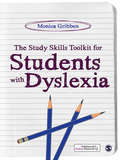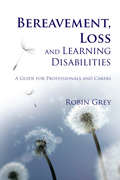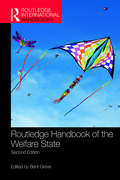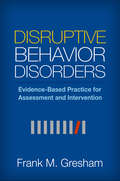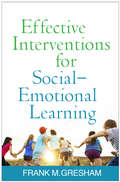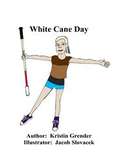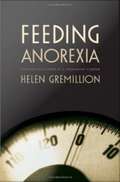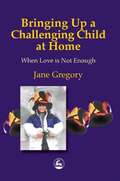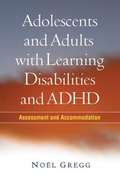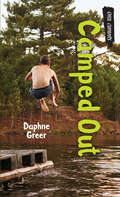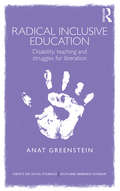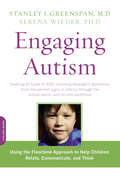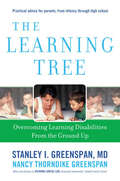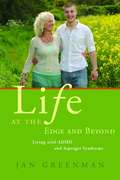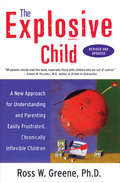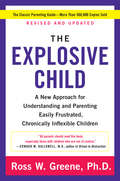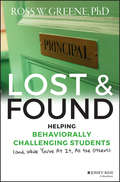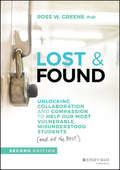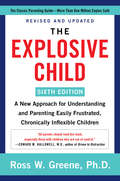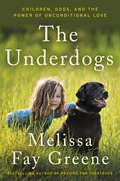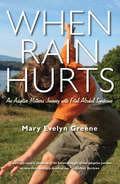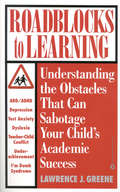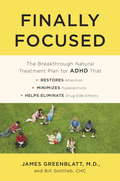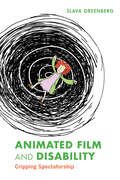- Table View
- List View
The Study Skills Toolkit for Students with Dyslexia (Sage Study Skills Ser.)
by Monica Gribben'This toolkit is the student's safety net offering user friendly, down to earth advice and real life skills that have been tried and tested by the author'-Dr John Schneider, Educational Psychologist, Edinburgh 'This is exactly how I felt starting university ... a wonderful and very helpful book full of interesting and useful hints and tips on how to survive university as a dyslexic student. It doesn't make you feel silly or stupid but makes you feel you can achieve what you set out to do'-Sharon Patterson, Adult Nursing student, Edinburgh Napier University 'You realize you're in the hands of a professional who has taught thousands of students how to succeed at university'-Holly Pellicer, Dyslexia Advisor, University of Oslo Packed with helpful advice, checklists and templates, this book will help you improve your study skills throughout your time at university. Written in a straightforward, no- nonsense style, the guidance can be broken down into manageable chunks. Issues covered include: - procrastination - planning your assignment - understanding your essay question - researching, writing and referencing your written work - managing your own well-being. Drawing on years of experience running study skills workshops in higher education, Monica Gribben has written an accessible book for students with dyslexia that shows how to work through the challenges that studying presents. The companion Website www.sagepub.co.uk/gribben has podcasts, worksheets and electronic resources to support each chapter. Monica Gribben is a private dyslexia consultant and Dyslexia Adviser at Edinburgh Napier University.
Bereavement, Loss and Learning Disabilities
by Robin GreyLosing a loved one and coping with the subsequent adjustments that follow are a difficult fact of life, but people with learning disabilities face specific difficulties in processing and managing these changes. Adopting an integrative approach, this book acknowledges the importance of helping relationships in supporting this vulnerable group through periods of loss and bereavement. The author explains how to engage the person with a learning disability in talking therapy by creating an open dialogue. Common signs of stress, factors to consider in assessing risk and advice on how best to approach difficult subjects are presented. The role of supervision in counselling and issues surrounding terminal illness are also discussed, and practical solutions offered. Professionals working in the field of learning disabilities, such as counsellors, therapists, carers and health and social care students will find this informed guide beneficial in communicating and supporting people with learning disabilities.
Routledge Handbook of the Welfare State (Routledge International Handbooks)
by Bent GreveForty-five contributions from renowned international specialists in the field provide readers with expert analysis of the core issues related to the welfare state, including regional depictions of welfare states around the globe. The second edition of the Routledge Handbook of the Welfare State combines essays on methodologies, core concepts and central policy areas to produce a comprehensive understanding of what ‘the welfare state’ means around the world. In the aftermath of the credit crunch, the Handbook addresses some of the many questions about the welfare state. This second edition has been thoroughly revised and updated to include an in-depth analysis of societal changes in recent years. New articles can be found on topics such as: the impact of ideas, well-being, migration, globalisation, India, welfare typologies, homelessness and long-term care. This volume will be an invaluable reference book for students and scholars throughout the social sciences, particularly in sociology, social policy, public policy, international relations, politics and gender studies.
Disruptive Behavior Disorders
by Frank M. GreshamSchools often resort to ineffective, punitive interventions for the 10% of K-8 students whose challenging behavior interferes with their own and their classmates' learning. This book fills a crucial need by describing ways to provide meaningful supports to students with disruptive behavior disorders. Prominent authority Frank M. Gresham weaves together current research, assessment and intervention guidelines, and illustrative case studies. He reviews a broad range of evidence-based practices and offers recommendations for selecting, implementing, and evaluating them within a multi-tiered framework. Coverage includes school- and home-based approaches, multicomponent programs, prevention strategies, and social skills training.
Effective Interventions for Social-Emotional Learning
by Frank M. GreshamThis book reviews evidence-based, multi-tiered practices for promoting social-emotional learning (SEL) with typically developing students as well as those with special needs. Leading authority Frank M. Gresham, codeveloper of the Social Skills Improvement System--Rating Scales, describes how to systematically assess K-12 students' social skills and plan and implement universal, selected, and intensive interventions. His approach is grounded in cutting-edge research on social-emotional competencies and their role in adjustment and academic achievement. Emphasizing what works, the book showcases programs and strategies that are sequenced, active, focused, and explicit. Detailed case examples and lesson plans illustrate different levels and types of SEL intervention. Reproducible assessment tools can be downloaded and printed in a convenient 8 1/2" x 11" size.
Feeding Aorexia: Gender and Power at a Treatment Center
by Helen GremillionFeeding Anorexia challenges prevailing assumptions regarding the notorious difficulty of curing anorexia nervosa. Through a vivid chronicle of treatments at a state-of-the-art hospital program, Helen Gremillion reveals how the therapies participate unwittingly in culturally dominant ideals of gender, individualism, physical fitness, and family life that have contributed to the dramatic increase in the incidence of anorexia in the United States since the 1970s. She describes how strategies including the meticulous measurement of patients' progress in terms of body weight and calories consumed ultimately feed the problem, not only reinforcing ideas about the regulation of women's bodies, but also fostering in many girls and women greater expertise in the formidable constellation of skills anorexia requires. At the same time, Gremillion shows how contradictions and struggles in treatment can help open up spaces for change. Feeding Anorexia is based on fourteen months of ethnographic research in a small inpatient unit located in a major teaching and research hospital in the western United States. Gremillion attended group, family, and individual therapy sessions and medical staff meetings; ate meals with patients; and took part in outings and recreational activities. She also conducted over one hundred interviews-with patients, parents, staff, and clinicians. Among the issues she explores are the relationship between calorie-counting and the management of consumer desire; why the "typical" anorexic patient is middle-class and white; the extent to which power differentials among clinicians, staff, and patients model "anorexic families"; and the potential of narrative therapy to constructively reframe some of the problematic assumptions underlying more mainstream treatments.
Bringing Up a Challenging Child at Home
by Jane GregoryChrissy is Jane Gregory's oldest child, an attractive girl with a tremendous sense of fun. She also exhibits behaviour which other people find challenging - screaming fits, stripping off her clothes, violent outbursts and self-mutilation. It was apparent from an early age that Chrissy had a learning disability, and subsequently as an adult she was diagnosed with a rare chromosome disorder and autism. In Bringing Up a Challenging Child at Home, Jane Gregory describes her life with Chrissy candidly and pragmatically. She relates her struggles to cope with Chrissy's difficult behaviour, the effects on the rest of the family, and her attempts to understand the reasons behind it. Offering practical advice for other parents, she explains how she got the right support and effective treatment. Her story provides professionals as well as parents with a unique insight into what it is like to bring up a complex and challenging child.
Adolescents and Adults with Learning Disabilities and ADHD
by Noël GreggMost of the literature on learning disabilities and attention-deficit/hyperactivity disorder (ADHD) focuses on the needs of elementary school-age children, but older students with these conditions also require significant support. Comprehensive and authoritative, this book helps educators and clinicians navigate the maze of laws, policies, and scientific research relating to diagnostic and intervention decision making for adolescents and adults. Leading expert No\u00ebl Gregg provides clear guidance on how to conduct and document evidence-based assessments and select appropriate instructional and testing accommodations. Featuring helpful case vignettes, decision-making flowcharts, and coverage of the latest assistive technologies, the book gives special attention to supporting students during the crucial transition from high school to higher education or vocational settings.
Camped Out (Orca Currents)
by Daphne GreerMax knows his mom can't afford to send him to summer camp. But he really, really wants to go. He needs a break from looking after his autistic brother, Duncan. And from his mom's new boyfriend. He is surprised when his mom says that he can go after all. But there's a catch. There are spots available at the camp for families with special needs. A grant would cover Duncan's fees, and Max could attend at no charge. If he goes as Duncan's escort. This is the second story featuring Max and Duncan after Maxed Out.
Radical Inclusive Education: Disability, teaching and struggles for liberation (Concepts for Critical Psychology)
by Anat GreensteinMany people who work in education start out with enthusiastic ideals about education as a positive force that can spur change in the life of the learner and in society at large, yet find themselves frustrated with a bureaucratic system that often alienates and excludes many of its students. This is particularly true for students identified as having "special educational needs" (SEN) or disability, a label often used to justify the ways in which students are failed by a system that focuses on narrow definitions of knowledge, seeks to normalise and control behaviour, and values economic productivity over other forms of human activity. Radical Inclusive Education explores how current educational practices, such as standardised tests and league tables, exclude and fail many disabled students, and naturalise educational inequalities around gender, class, ethnicity and ability. Informed by the social model of disability, the book argues that educational theories and practices that are geared towards social justice and inclusion need to recognise and value the diversity of human embodiments, needs and capacities, and foster pedagogical practices that support relations of interdependency. The book draws on work in disability studies, critical psychology and critical pedagogy, and also real life examples from interviews with activists in the disabled people’s movement, and from research in a school, to offer examples of what radical inclusive education – that is sensitive to the needs of all students – might look like in practice. As such, it will be of great interest to practitioners and students in the field of education, particularly for those interested in SEN and disability, sociology of education, critical pedagogy, informal education and social movement learning.
Engaging Autism: Using the Floortime Approach to Help Children Relate, Communicate, and Think (A Merloyd Lawrence Book)
by Stanley I. Greenspan Serena WiederGrateful parents and professionals worldwide have welcomed this essential guide to the highly recommended Floortime approach for treating children with any of the autism spectrum disorders (ASD). Now available in paperback, Engaging Autism includes new, exciting information on neuroscience research into the effects of this approach, plus guidance for parents navigating the controversies surrounding the treatment of autism. Unlike approaches that focus on changing specific behavior, Greenspan’s program promotes the building blocks of healthy emotional and behavioral development. He shows that, remarkably, children with ASD do not have a fixed, limited potential, and may often join their peers to lead full, psychologically healthy lives. The Floortime approach can also be applied at any age--including early infancy, when the first signs of risk for ASD may appear--so that preventing the full development of autism becomes a real possibility.
The Learning Tree: Overcoming Learning Disabilities from the Ground Up (A Merloyd Lawrence Book)
by Stanley I. Greenspan Nancy Thorndike GreenspanThe internationally admired author of "Engaging Autism" shows parents how to get to the roots of learning disabilities and unleash each childOCOs intellectual potential
Life at the Edge and Beyond
by Jan GreenmanParenting a child with Asperger's syndrome is never easy, and adding ADHD to the psychological mix makes life even more difficult. In this searingly honest account of bringing up her son, Luke, Jan Greenman challenges common perceptions of a 'life with labels', and recalls her family's 18 year journey to the edge and back. Writing frankly about the medical issues of Luke's early years, including the impact of MMR and Ritalin, Jan recalls how Luke's diagnoses came about, and how life at The Edge, their aptly named family home, changed as a result. She describes the causes and effects of the behaviours associated with Luke's conditions, and the impact they had on each family member, including his younger sister, Abbi. The only predictable thing about Luke is his unpredictability, and Jan also takes a light-hearted look at some of his more unusual habits and obsessions. The book includes tips and advice from Jan, Abbi, and Luke himself, and the final chapters go beyond Luke's early years to look at his life as a teenager - his solo trip to Dubai, and subsequent encounter with customs, his expulsion from school, and the inspirational Headteacher who helped him to turn his life around. Life at the Edge and Beyond is a must for anyone involved in bringing up a child with Asperger's syndrome, ADHD - or both. Parents will take from the family's successes, learn from their mistakes, and realize that, no matter how close to the edge they may feel, they are never alone.
The Explosive Child: A New Approach for Understanding and Parenting Easily Frustrated, "Chronically Inflexible" Children
by Ross W. GreeneWhat's an explosive child? A child who responds to routine problems with extreme frustration-crying, screaming, swearing, kicking, hitting, biting, spitting, destroying property, and worse. A child whose frequent, severe outbursts leave his or her parents feeling frustrated, scared, worried, and desperate for help. Most of these parents have tried everything--reasoning, explaining, punishing, sticker charts, therapy, medication-- but to no avail. They can't figure out why their child acts the way he or she does; they wonder why the strategies that work for other kids don't work for theirs; and they don't know what to do instead. Dr. Ross Greene, a distinguished clinician and pioneer in the treatment of kids with social, emotional, and behavioral challenges, has worked with thousands of explosive children, and he has good news: these kids aren't attention-seeking, manipulative, or unmotivated, and their parents aren't passive, permissive pushovers. Rather, explosive kids are lacking some crucial skills in the domains of flexibility/adaptability, frustration tolerance, and problem solving, and they require a different approach to parenting. Throughout this compassionate, insightful, and practical book, Dr. Greene provides a new conceptual framework for understanding their difficulties, based on research in the neurosciences. He explains why traditional parenting and treatment often don't work with these children, and he describes what to do instead. Instead of relying on rewarding and punishing, Dr. Greene's Collaborative Problem Solving model promotes working with explosive children to solve the problems that precipitate explosive episodes, and teaching these kids the skills they lack.
The Explosive Child
by Ross W. GreeneScreaming, swearing, crying, hitting, kicking, spitting, biting...these are some of the challenging behaviors we see in kids who are having difficulty meeting our expectations. These behaviors often leave parents feeling frustrated, angry, overwhelmed, and desperate for answers. In this fully revised and updated book, Dr. Ross Greene helps you understand why and when your child does these things and how to respond in ways that are nonpunitive, nonadversarial, humane, and effective.Dr. Greene describes how best to: Understand the factors that contribute to challenging episodes. Identify the specific situations in which challenging episodes are likely to occur. Reduce or eliminate challenging episodes by solving the problems that cause them. Solve problems collaboratively (rather than unilaterally) and proactively (rather than reactively). Help your child develop the skills to be more flexible, solve problems, and handle frustration more adaptively. Reduce hostility and antagonism between you and your child.With Dr. Greene's practical, expert guidance, you and your child will forge a new relationship based on communication and mutual respect.
The Explosive Child
by Ross W. GreeneWhat's an explosive child? A child who responds to routine problems with extreme frustration-crying, screaming, swearing, kicking, hitting, biting, spitting, destroying property, and worse. A child whose frequent, severe outbursts leave his or her parents feeling frustrated, scared, worried, and desperate for help. Most of these parents have tried everything-reasoning, explaining, punishing, sticker charts, therapy, medication-but to no avail. They can't figure out why their child acts the way he or she does; they wonder why the strategies that work for other kids don't work for theirs; and they don't know what to do instead. Dr. Ross Greene, a distinguished clinician and pioneer in the treatment of kids with social, emotional, and behavioral challenges, has worked with thousands of explosive children, and he has good news: these kids aren't attention-seeking, manipulative, or unmotivated, and their parents aren't passive, permissive pushovers. Rather, explosive kids are lacking some crucial skills in the domains of flexibility/adaptability, frustration tolerance, and problem solving, and they require a different approach to parenting. Throughout this compassionate, insightful, and practical book, Dr. Greene provides a new conceptual framework for understanding their difficulties, based on research in the neurosciences. He explains why traditional parenting and treatment often don't work with these children, and he describes what to do instead. Instead of relying on rewarding and punishing, Dr. Greene's Collaborative Problem Solving model promotes working with explosive children to solve the problems that precipitate explosive episodes, and teaching these kids the skills they lack.
Lost and Found: Helping Behaviorally Challenging Students (and, While You're At It, All the Others)
by Ross W. GreeneImplement a more constructive approach to difficult students Lost and Found is a follow-up to Dr. Ross Greene's landmark works, The Explosive Child and Lost at School, providing educators with highly practical, explicit guidance on implementing his Collaborative & Proactive Solutions (CPS) Problem Solving model with behaviorally-challenging students. While the first two books described Dr. Greene's positive, constructive approach and described implementation on a macro level, this useful guide provides the details of hands-on CPS implementation by those who interact with these children every day. Readers will learn how to incorporate students' input in understanding the factors making it difficult for them to meet expectations and in generating mutually satisfactory solutions. Specific strategies, sample dialogues, and time-tested advice help educators implement these techniques immediately. The groundbreaking CPS approach has been a revelation for parents and educators of behaviorally-challenging children. This book gives educators the concrete guidance they need to immediately begin working more effectively with these students. Implement CPS one-on-one or with an entire class Work collaboratively with students to solve problems Study sample dialogues of CPS in action Change the way difficult students are treated The discipline systems used in K-12 schools are obsolete, and aren't working for the kids to whom they're most often applied - those with behavioral challenges. Lost and Found provides a roadmap to a different paradigm, helping educators radically transform the way they go about helping their most challenging students.
Lost and Found: Unlocking Collaboration and Compassion to Help Our Most Vulnerable, Misunderstood Students (and All the Rest) (J-B Ed: Reach and Teach)
by Ross W. GreeneHelp the students with concerning behaviors without detentions, suspensions, expulsions, paddling, restraint, and seclusion In the newly revised Second Edition of Lost and Found, distinguished child psychologist Dr. Ross W. Greene delivers an insightful and effective framework for educators struggling with students with concerning behaviors. The author’s Collaborative & Proactive Solutions (CPS) approach focuses on the problems that are causing concerning behaviors and helps school staff partner with students to solve those problems rather than simply modifying the behavior. In this book, you’ll discover: A more compassionate, practical, effective approach to students’ concerning behaviors, one that positions educators as allies, not enemies, and as partners, not adversaries Updated examples and dialogue suited to modern classrooms and recent innovations from the constantly evolving CPS model Specific advice on how schools can eliminate the use of punitive, exclusionary disciplinary procedures and address disproportionality Perfect for K-12 educators in general and special education, Lost and Found has also become standard reading for teachers-in-training, professors, and parents who struggle to help students for whom “everything” has already been tried.
The Explosive Child [Sixth Edition]: A New Approach for Understanding and Parenting Easily Frustrated, Chronically Inflexible Children
by Ross W Greene PhDNow in a revised and updated 6th edition, the groundbreaking, research-based approach to understanding and parenting children who frequently exhibit severe fits of temper and other challenging behaviors, from a distinguished clinician and pioneer in the field.What’s an explosive child? A child who responds to routine problems with extreme frustration—crying, screaming, swearing, kicking, hitting, biting, spitting, destroying property, and worse. A child whose frequent, severe outbursts leave his or her parents feeling frustrated, scared, worried, and desperate for help. Most of these parents have tried everything-reasoning, explaining, punishing, sticker charts, therapy, medication—but to no avail. They can’t figure out why their child acts the way he or she does; they wonder why the strategies that work for other kids don’t work for theirs; and they don’t know what to do instead.Dr. Ross Greene, a distinguished clinician and pioneer in the treatment of kids with social, emotional, and behavioral challenges, has worked with thousands of explosive children, and he has good news: these kids aren’t attention-seeking, manipulative, or unmotivated, and their parents aren’t passive, permissive pushovers. Rather, explosive kids are lacking some crucial skills in the domains of flexibility/adaptability, frustration tolerance, and problem solving, and they require a different approach to parenting. Throughout this compassionate, insightful, and practical book, Dr. Greene provides a new conceptual framework for understanding their difficulties, based on research in the neurosciences. He explains why traditional parenting and treatment often don’t work with these children, and he describes what to do instead. Instead of relying on rewarding and punishing, Dr. Greene’s Collaborative Problem Solving model promotes working with explosive children to solve the problems that precipitate explosive episodes, and teaching these kids the skills they lack.
The Underdogs: Children, Dogs, and the Power of Unconditional Love
by Melissa Fay GreeneFrom two-time National Book Award nominee Melissa Fay Greene comes a profound and surprising account of dogs on the front lines of rescuing both children and adults from the trenches of grief, emotional, physical, and cognitive disability, and post-traumatic stress disorder.The Underdogs tells the story of Karen Shirk, felled at age twenty-four by a neuromuscular disease and facing life as a ventilator-dependent, immobile patient, who was turned down by every service dog agency in the country because she was "too disabled." Her nurse encouraged her to tone down the suicidal thoughts, find a puppy, and raise her own service dog. Karen did this, and Ben, a German shepherd, dragged her back into life. "How many people are stranded like I was," she wondered, "who would lead productive lives if only they had a dog?"A thousand state-of-the-art dogs later, Karen Shirk's service dog academy, 4 Paws for Ability, is restoring broken children and their families to life. Long shunned by scientists as a manmade, synthetic species, and oft- referred to as "Man's Best Friend" almost patronizingly, dogs are finally paid respectful attention by a new generation of neuroscientists and animal behaviorists. Melissa Fay Greene weaves the latest scientific discoveries about our co-evolution with dogs with Karen's story and a few exquisitely rendered stories of suffering children and their heartbroken families.Written with characteristic insight, humanity, humor, and irrepressible joy, what could have been merely touching is a penetrating, compassionate exploration of larger questions: about our attachment to dogs, what constitutes a productive life, and what can be accomplished with unconditional love.
When Rain Hurts: An Adoptive Mother's Journey with Fetal Alcohol Syndrome
by Mary Evelyn Greene“A searingly candid chronicle of the heroic struggle of two adoptive parents to raise their multiply disabled son . . . inspiring.” —Kirkus ReviewsWhen Rain Hurts is the story of one mother’s quest to find a magical path of healing and forgiveness for her son, a boy so damaged by the double whammy of prenatal alcohol abuse and the stark rigors of Russian orphanage life that he was feral by the time of his adoption at age three. Bizarre behaviors, irrational thoughts, and dangerous preoccupations were the norm—no amount of love, it turns out, can untangle the effects of Fetal Alcohol Syndrome.More people are coping with and caring for those affected by Fetal Alcohol Spectrum Disorders than individuals living with autism, but because there is a stigma associated with this preventable, devastating birth defect, it is a pandemic of disability and tragedy that remains underreported and underexplored. When Rain Hurts puts an unapologetic face to living and coping with this tragedy while doggedly searching for a more hopeful outcome for one beautiful, innocent, but damaged little boy.“Emotionally complex, fascinating, gritty, exhausting, and teeming with protective mother-energy and love. Three cheers for Mary Greene’s fighting spirit and the work she’s doing to create and protect her family while educating so many of us about the complexities of international adoption and Fetal Alcohol Spectrum Disorders.” —Sheri Reynolds, #1 New York Times-bestselling author“Greene’s searing account of learning to parent her prenatal alcohol-exposed, bipolar, orphanage-veteran son is an unforgettable lesson in commitment, fortitude, and unconditional love.” —Jessica O’Dwyer, author of Mamalita: An Adoption Memoir
Roadblocks to Learning: Understanding the Obstacles That Can Sabotage Your Child's Academic Success
by Lawrence J. GreeneThis comprehensive guide explains the symptoms and terminology associated with children who struggle in school because of underachievement and learning problems and offers parents practical solutions.Over seven million children suffer from learning difficulties. Most of these children are stuck in classrooms where their needs are not met or even recognized by an overcrowded school system. However, with the right information and diagnostic tools, parents can provide life-long learning skills specially targeted to their childrens needs. This book lays out the symptoms, terms, and trategies parents will encounter if their child has a learning block and explains how to convey their childs needs and condition to teachers. Categorized and cross-referenced for easy access, ROADBLOCKS TO LEARNING covers over 70 different obstacles to learning. From study skills to ADD, from problem solving to teacher-child conflict, this indispensable guide is for all parents who want to ensure their child is learning to his/her full potential.
Finally Focused: The Breakthrough Natural Treatment Plan for ADHD That Restores Attention, Minimizes Hyperactivity, and Helps Eliminate Drug Side Effects
by James Greenblatt Bill GottliebDISCOVER THE ADHD SOLUTION FOR YOUR CHILDDr. James Greenblatt has seen thousands of children and adults struggling with the symptoms of ADHD – hyperactivity, inattentiveness, impulsiveness, and often irritability and combativeness. Rather than simply prescribing medication for their ADHD symptoms, he tailors remedies to his patients’ individual needs, detecting and treating the underlying causes of the disorder. Finally Focused provides proven natural and medical methods to easily treat problems such as nutritional deficiencies or excesses, dysbiosis (a microbial imbalance inside the body), sleeping difficulties, and food allergies, all of which surprisingly can cause or worsen the symptoms of ADHD. Using Dr. Greenblatt’s effective Plus-Minus Healing Plan, parents will first understand the reasons behind their child's symptoms, and then be able to eliminate them by addressing the child’s unique pattern of biological weakness. Adults with ADHD can do the same for themselves. And if conventional medication is still necessary, this integrative approach will minimize or even eliminate troublesome side effects. Using Dr. Greenblatt’s expert advice, millions of children and adults with ADHD finally will get the help they need to achieve true wellness.
Animated Film and Disability: Cripping Spectatorship
by Slava GreenbergWhile many live-action films portray disability as a spectacle, "crip animation" (a genre of animated films that celebrates disabled people's lived experiences) uses a variety of techniques like clay animation, puppets, pixilation, and computer-generated animation to represent the inner worlds of people with disabilities. Crip animation has the potential to challenge the ableist gaze and immerse viewers in an alternative bodily experience.In Animated Film and Disability, Slava Greenberg analyzes over 30 animated works about disabilities, including Rocks in My Pockets, An Eyeful of Sound, and A Shift in Perception. He considers the ableism of live-action cinematography, the involvement of filmmakers with disabilities in the production process, and the evocation of the spectators' senses of sight and hearing, consequently subverting traditional spectatorship and listenership hierarchies. In addition, Greenberg explores physical and sensory accessibility in theaters and suggests new ways to accommodate cinematic screenings.Offering an introduction to disability studies and crip theory for film, media, and animation scholars, Animated Film and Disability demonstrates that crip animation has the power to breach the spectator's comfort, evoking awareness of their own bodies and, in certain cases, their social privileges.
